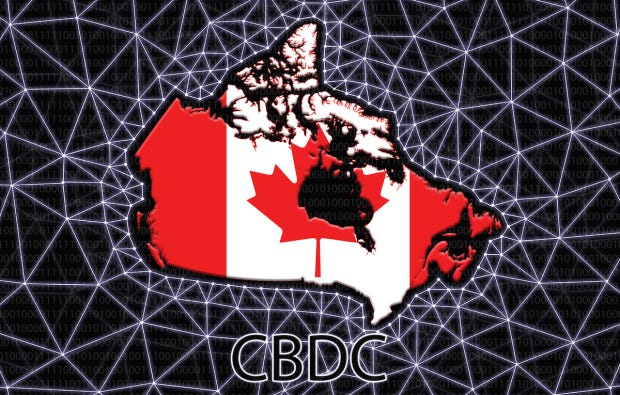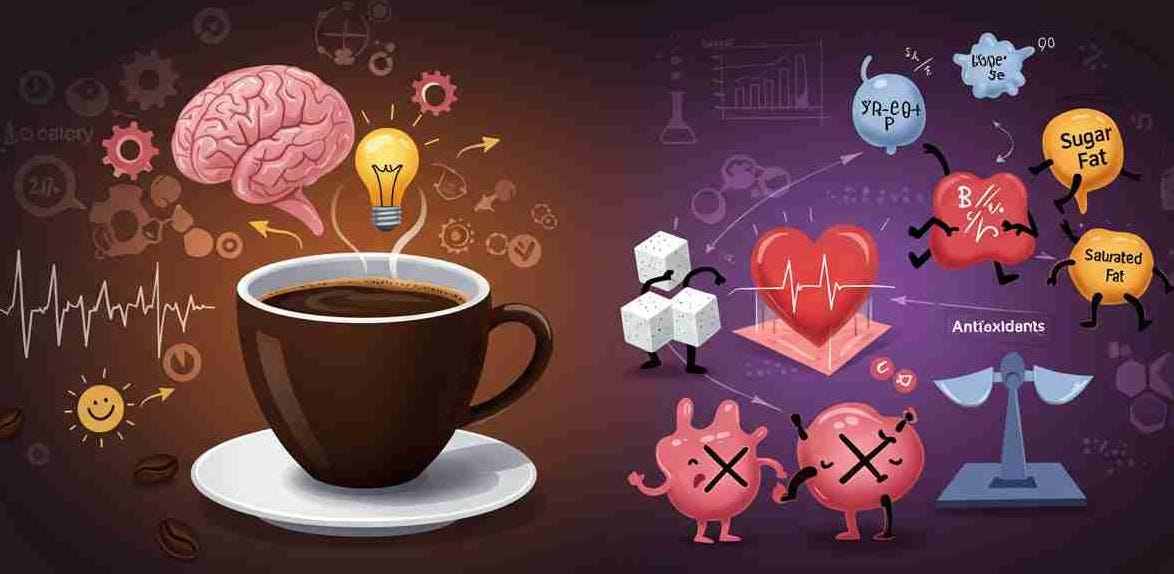Good morning, it’s Thursday, June 19th. In today’s news, the neocon playbook is back in action, the Bank of Canada drops a new report on central bank digital currencies, Mark Carney’s Bill C-5 could give cabinet power to suspend federal law, Doug Ford backs “castle laws” after a car owner is charged for shooting at thieves, and much more.
First time reading the daily blend? Sign up here.
History Repeats Itself: From Iraq to Iran, the Neocon Playbook Returns
There’s a familiar playbook being dusted off in Washington and Tel Aviv. Once again, the same voices that brought us Iraq, Libya, Syria, and Afghanistan are warning that Iran poses an urgent threat. This time, it may not be about full-scale regime change—at least not at first. Some suggest it’s about narrowly targeted strikes on nuclear facilities, a quick and contained operation. But history teaches us that what starts as “limited” military action can spiral quickly—and uncontrollably.
This strategy isn’t new. It traces back to the 1996 “Clean Break” memo, a policy paper written for Israeli Prime Minister Benjamin Netanyahu by American neoconservatives. It advised Israel to abandon peace processes and instead pursue regional dominance through the destabilization of neighboring regimes—Iraq, Syria, Lebanon, and eventually Iran. That memo didn’t stay in Israel. Many of its authors went on to help shape U.S. foreign policy under George W. Bush. What followed was a series of regime change operations that turned the Middle East into a patchwork of failed states and armed insurgencies.
We were told Iraq had weapons of mass destruction. That lie launched a war that killed hundreds of thousands, fractured a nation, and gave rise to ISIS. In Afghanistan, 20 years was spent fighting the Taliban, only for them to retake power the moment Western forces left. In Syria, regime change efforts led to a fractured state and ISIS controlling large swaths of territory. In Libya, the overthrow of Gaddafi turned the country into a failed state plagued by open-air slave markets. None of these operations went according to plan. All were sold as necessary. All ended in catastrophe.
Now, the push for confrontation with Iran is being framed around its nuclear program. And while Trump recently claimed Iran is “very close” to building a bomb, his Director of National Intelligence, Tulsi Gabbard, testified just months earlier that the intelligence community “continues to assess that Iran is not building a nuclear weapon” and that Supreme Leader Khamenei has not authorized such a program. Iran does possess an unprecedented stockpile of enriched uranium, and their intentions deserve scrutiny—but even if they are dangerously close, it’s fair to ask: why should we trust the same people who’ve lied before?
Trump campaigned on three pillars: ending illegal immigration, cutting federal spending, and stopping wars. He’s already failed on spending. A war with Iran would collapse the third pillar. His movement is fracturing, and the same old playbook is resurfacing.
This isn’t about defending Iran. It’s about learning from history. The people demanding regime change today are the same ones who’ve spent decades getting it wrong. And even if they’re right this time—they’ve forfeited the benefit of trust.
Bank of Canada: CBDCs 'Not Recommended'—Just Fully Studied, Designed, and Shelved (for Now)
The Bank of Canada recently released a report on the feasibility of an online retail central bank digital currency (CBDC), titled “A Retail CBDC Design For Basic Payments Feasibility Study.” While the report acknowledges the potential benefits of such a system for basic payments—highlighting speed, cost-efficiency, and privacy—it stops short of recommending its implementation. Instead, the authors emphasize that any decision to introduce a CBDC is beyond the scope of their analysis.
Critics argue that moving towards a CBDC represents a dangerous expansion of government control over financial transactions. They warn that while the proposed systems show promise in terms of security and scalability, concerns remain about integration with existing payment systems and the resilience of the core infrastructure. Moreover, surveys indicate widespread public skepticism and resistance, with 85% of Canadians expressing concerns over privacy and the future of cash.
Despite global interest and experimentation with CBDCs, including by all G20 nations, the Bank of Canada intends to shift focus towards broader payments system research and policy development. This move highlights growing concerns over the push toward a digital currency in a country where cash and existing payment options still meet the needs of most Canadians.
Carney’s Power Grab: Bill C-5 Lets Cabinet Suspend Canadian Laws
Mark Carney’s Liberal government is quietly pushing through a bill that would give cabinet the power to suspend federal laws—no debate, no accountability, no oversight. Bill C-5, dubbed the Building Canada Act, is being rushed through Parliament just weeks before Canada Day. If passed, it would allow the federal cabinet to exempt any project it deems "in the national interest" from virtually any law, including environmental protections, criminal statutes, and even financial transparency rules.
The bill allows cabinet to issue orders-in-council to define national interest projects and then exempt them from existing laws with a simple regulation. That means Carney could shield any government-backed development—from telecoms to green energy—to foreign-owned infrastructure, from legal scrutiny. Even Carney’s planned national housing agency could operate free of the Auditor General’s reach, conflict-of-interest checks, and the Income Tax Act.
It gets worse. The legislation allows these exemptions to apply to foreign companies, including those typically scrutinized under the Investment Canada Act, which exists to safeguard economic and national security. So if Carney wanted to cut a sweetheart deal with a foreign EV manufacturer or an ESG-aligned solar firm to build on parkland, he could do it with zero transparency and no legal recourse.
This isn’t hypothetical. As the former ESG czar at Brookfield Asset Management, Carney has close ties to industries that would benefit directly from this bill—especially modular housing and green energy. His assets may be in a blind trust, but ethics disclosures remain pending. The conflicts of interest here are glaring.
Supporters argue the bill only suspends 13 laws—for now. But that list can be expanded at will, once the framework is in place. It’s a Trojan horse: a fast-tracked mechanism to override democracy in the name of efficiency.
The Bloc Québécois has pledged to fight it. The Conservatives, however, remain noncommittal—an astounding failure from the only party capable of stopping it. Parliament should be fixing the laws that stifle development, not handing themselves a blank cheque to bypass them entirely. Source.
Middle East Escalates: Israel Attacks, Iran Threatens, and Trump Weighs Military Strike
Tensions in the Middle East are spiralling as Israel eliminates another top Iranian commander, Iran warns of nuclear retaliation, and President Trump signals growing openness to military strikes—while still dangling the prospect of a deal.
Supreme Leader Defiant: Trump's call for Iran's surrender is “threatening and ridiculous,” Khamenei said in a statement that was read out on state television today, which also warned that U.S. intervention would cause "irreparable damage." More
Iran and Israel Launch More Attacks as Trump Weighs US Involvement - More
Macron Sounds ‘Chaos’ Alarm Over Iran Regime Change—Citing the Aftermath of Iraq and Libya - More
Israel Kills Another Top Iranian Commander as Conflict Escalates - More
Iran State TV Urges Public to Delete WhatsApp, Claiming App Gathered Info for Israel - More
Trump Says Deal With Iran Still Possible—US Won't Kill Iran's Supreme Leader, 'At Least Not For Now' - More
Trump Getting Comfortable with Strikes on Iran's Nuclear Facility, Source Says - More
Ontario’s Ford Backs ‘Castle Law’ After Car Owner Charged for Shooting at Thieves
In what may signal a long-overdue shift toward sanity in Canada’s approach to crime, Ontario Premier Doug Ford has come out strongly in support of self-defence rights after a Vaughan man was charged for firing a warning shot during an attempted car theft on his property. Ford said the man “should get a medal” and offered to help fundraise for his legal fees, adding that Canadians deserve the same right to defend their homes and families as Americans under “castle doctrine” laws.
Ford also revealed that his own home was targeted the night before, with four masked suspects approaching his driveway before being intercepted by police. While arrests were made, he lamented that the accused would likely be “back out” soon under Canada’s soft bail system, calling it evidence of a “lawless society.”
The Premier renewed his call for federal bail reform, including mandatory minimums and a three-strikes rule for violent repeat offenders, and accused the justice system of lacking backbone. Ford’s remarks echo growing frustration across the country as crime surges and Canadians feel increasingly powerless to protect themselves. If this stance gains traction, it could mark the beginning of a broader push to restore law and order—and personal responsibility—in Canada. More
India Accused of Foreign Interference by Canadian Intelligence as Carney Meets Modi to Repair Relations - More
Grim Excavation Begins at Site in Ireland Believed to Contain Remains of Around 800 Babies - Irish Prime Minister Micheal Martin calls the situation 'very difficult, harrowing.' More
Kremlin: North Korea Sending 6,000 Army Personnel to Russia - More
Senate Passes Bill to Protect Supply Management From Any Future Trade Deals in Canada - ‘It does seem strange to allow a separatist party to set Canada’s national trade policy to such an extent,' said Sen. Paula Simons. More
Seven California Men Indicted in ‘Largest Jewelry Heist in US History’ - The men were part of a modern-day highwaymen crew that allegedly broke into a Brinks semi-truck and stole an estimated $100 million worth of gold, diamonds, rubies, emeralds, and luxury watches. More
Meta Tried to Lure OpenAI Staff With $100M Bonuses
Meta has been aggressively trying to poach OpenAI talent by offering signing bonuses up to $100 million, according to OpenAI CEO Sam Altman. Speaking on a podcast, Altman said none of OpenAI’s top staff have accepted the offers and criticized Meta’s approach as shortsighted. Meanwhile, Zuckerberg is pouring billions into AI, acquiring a 49% stake in Scale AI and personally leading recruitment efforts for a “superintelligence” lab. Though Meta’s AI models have faced setbacks, some analysts argue its open-source Llama platform is laying the groundwork for future dominance. More
Air Canada Named Best Airline in North America at the 2025 Skytrax World Airline Awards Presented at the Paris Air Show - More
Federal Reserve Keeps Interest Rates Unchanged, Signals 2 Cuts This Year
The US central bank says the American economy remains solid, but the outlook has ‘diminished.’ More
After 20 Years and 46,000 Participants, Here’s What Coffee Does to Your Health
A new study from Tufts University has found that drinking one to two cups of black coffee a day is associated with a significantly lower risk of death from all causes—up to 17% lower—compared to those who don’t drink coffee at all. The study, published in The Journal of Nutrition, followed over 46,000 US adults between 1999 and 2018 and is one of the first to quantify how sugar and cream affect coffee’s health benefits.
Coffee with small amounts of added sugar (under 2.5 grams per cup) and saturated fat (under 1 gram per cup) still showed some benefit, but those who added more than 5% of their daily recommended sugar or fat intake saw the mortality benefits disappear. Researchers say this is likely because the bioactive compounds in coffee—known for supporting heart and metabolic health—are offset by the negative effects of excess sugar and fat.
The greatest health benefits were observed with two to three cups per day, but no added advantage was seen beyond that. While coffee has been linked in past research to reduced risk of heart disease and some cancers, the study cautioned that high consumption (over five cups per day) could raise the risk of heart issues in some individuals. Researchers stressed that the key takeaway is not just that coffee can be healthy—but that how much you drink and how you take it matters. More
Your Brain is Glowing, and Scientists Can’t Figure Out Why - Researchers have measured the brain’s faint glow for the first time, hinting at a potential role of “biophotons” in cognition. More
Buss Family to Sell Lakers to Mark Walter at $10 Billion Valuation
The Buss family is selling majority ownership of the Los Angeles Lakers to billionaire Mark Walter in a record-setting deal that values the franchise at $10 billion—the highest ever for a US sports team. While the Buss family will retain a minority stake, Jeanie Buss will remain team governor and continue running the Lakers for several years. Walter, who already owns the Dodgers and has stakes in multiple sports franchises, has long held the right of first refusal on the Lakers. The sale has been endorsed by Magic Johnson, who praised Walter’s winning track record and commitment to excellence. More
Panthers Have Reportedly 'Cracked' and 'Dented' the Stanley Cup on the Montreal Section While Celebrating Their Win - More
Tampa Bay Rays Reportedly In 'Advanced Talks' to Sell MLB Team at $1.7 Billion Valuation - More
Tyler Perry Sued for $260 Million by Actor Alleging Sexual Harassment and Assault - More
China’s ‘Beer Exchange Bar’ Lets Prices Rise and Fall Like Stocks, with Real-Time Fluctuations Based on Customer Demand at Qingdao’s Wall Street-Inspired Pub
‘Shark Skin’ Coating for Airliners May Cut Fuel Use by 4%—Delta is Testing on its 767 Fleet
On This Day in 1865, Union General Gordon Granger Announced the Freedom of Enslaved People in Texas—Now Commemorated Nationwide as Juneteenth



















I don’t think history is repeating itself per se. This video explains the BIG picture…which I find HOPEFUL & worth supporting
https://x.com/jonathanbahai/status/1935502362493309303?s=46
I think your analysis of the Middle East is missing a key point. The installation of an Islamist, anti-Israel, anti-semitic regime in Iran in the late 70s -- with the help of an American president -- is a primary cause of the spread of Islamist colonialism and terrorism around the world.
Iran was too strong to invade post 9/11 because they were using the surrounding countries as shields. Since those countries have been destabilized, they now want Iran defeated and are not getting in Israel's way to remove a terrorist regime that is the root of modern terrorism.
Iran is also not like Iraq and other countries because it was a peaceful, modern society prior to the Islamist takeover, so the people already have a leader to return and Iran will again belong to the Iranian people.
Afghanistan was weakened by Soviet invasion, and Bush's attempt to "democratize Iraq" was a misguided attempt to change their culture. (And for the record, I think using false intelligence to justify an invasion was egregious).
That's just my take, I'm certainly not a Middle Eastern scholar. But painting the removal of a dictator that the Iranian people want gone so they can bring back the leader they recognize is not the same as the situations in Afghanistan, Iraq or Syria.